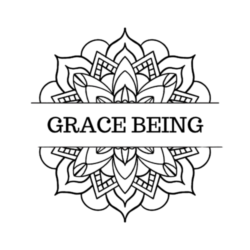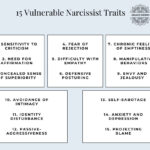How Does a Narcissist React When You Stop Chasing Them?
If you’re entwined in a relationship with a narcissist, understanding ‘how does a narcissist react when you stop chasing them?’ becomes vital. This knowledge could predict their next move, equipping you with the right strategies to deal with their behaviors.
This blog post shines a light on the complex patterns of a narcissist’s reactions when the tables are turned.
In exploring these behavioral shifts, you’ll be empowered to anticipate their tactics, navigate through manipulative traps, and maintain your emotional strength. Understanding these reactions is a key step in reclaiming control over your life and interactions.
If you’re keen to deepen your understanding of narcissistic personality disorder, heal the wounds, and rediscover joy and purpose in life, I warmly welcome you to my Narcissistic Abuse Recovery Program. Within its framework, you’ll access essential tools and strategies that steer you towards liberation, healing, self-renewal, and empowered living. For those seeking a more personalized touch, I also extend one-on-one Narcissistic Abuse Counseling tailored to your unique situation and needs.
5 Possible Narcissist Reactions When You Stop Chasing Them
It’s a familiar struggle being entwined with a narcissist, mentally running through potential outcomes and scenarios. You may feel as if you’ve exhausted all options, yet nothing changes and you’re brainstorming different strategies on how to deal with a narcissist.
It often feels like you can’t do enough or be good enough to satisfy their needs. Perhaps you’re at your wit’s end, tired of the never-ending drama, and wondering how the narcissist will react when you stop chasing them.
Some of you may even contemplate this step as a strategy to regain their attention. I’ve walked that path, tried every possible route, and can honestly tell you that nothing can mend the dysfunctional relationship or alter the narcissist’s nature.
The real solution, albeit challenging, lies in removing yourself from this chaotic cycle and setting firm boundaries with those who consistently harm you.
Nonetheless, understanding the potential reactions of a narcissist when you stop chasing them can be enlightening. Let’s delve into it.
1. Rage and Retaliation:
When you stop chasing a narcissist, their first reaction might be intense anger or ‘narcissistic rage’. They may resort to aggressive behaviors or emotional manipulation to regain control. This immediate response of rage showcases one of the 12 traits of a narcissist: their intense desire to dominate and manipulate interpersonal dynamics to their advantage.
2. Playing the Victim:
They may try to garner sympathy and manipulate your feelings by playing the victim. This could include guilt-tripping, tearful pleas, or recounting past traumas to pull you back in. This form of emotional coercion is one of the major narcissist red flags to watch out for.
It underscores their ability to twist narratives for personal gain. Understanding these manipulation tactics can help you to protect your mental wellbeing and maintain your resolve to set healthy boundaries.
Related: 7 Signs of a Female Narcissist
3. Love Bombing:
When you stop chasing a narcissist, there’s a high probability that they will start love bombing you. This is a manipulative tactic when the narcissist, in an attempt to reel you back in, suddenly showers you with overwhelming affection.
This also involves making you grand promises or presenting you lavish gifts. It’s a manipulative strategy designed to make you question your decision and second-guess the validity of their previous harmful behaviors.
4. The Silent Treatment:
Alternatively, they might respond by giving you the silent treatment in an attempt to provoke you into chasing them again. This cold, dismissive behavior is a classic narcissist reaction when you stop chasing them.
It serves as a form of emotional punishment designed to elicit feelings of guilt or fear of abandonment in you. It’s another manipulation tactic in their arsenal, further highlighting the necessity for maintaining strong personal boundaries.
5. Moving On Swiftly:
Finally, they may appear to move on quickly, flaunting a new relationship or life change. This is often a facade intended to provoke feelings of jealousy or fear of missing out, hoping to reel you back in.
It’s crucial to recognize this for what it is – another manipulative ploy, a psychological game to destabilize you and shake your resolve. Remember, their seemingly swift recovery is rarely genuine but a strategic move in the continuous power play of their narcissistic world.
Does a narcissist want you to chase them?
Absolutely, narcissists often crave the attention and validation that comes from being chased. This chase feeds into their ego, their sense of superiority, and their need for control over others.
The chase isn’t just about having you by their side. It’s more about the thrill of power and manipulation they feel by keeping you in a cycle of constant pursuit.
One of the common characteristics on the narcissist checklist is their excessive need for admiration and validation. Which is why they often craft situations that keep you invested in them.
Additionally, narcissists are often terrified of being alone or abandoned. Having someone chase them assuages these fears and bolsters their self-esteem, reaffirming their self-perceived importance and desirability.
However, it’s crucial to note that chasing a narcissist rarely leads to a fulfilling relationship. It typically maintains a cycle of emotional abuse and manipulation, where your needs and feelings are often overlooked and invalidated. Hence, it’s vital to recognize these dynamics and take steps to protect your own emotional wellbeing.
Final Thoughts
In understanding ‘how does a narcissist react when you stop chasing them’, it’s important to remember that narcissists rely heavily on the emotional responses they elicit from you. Their tactics, whether it’s rage, playing the victim, love bombing, giving the silent treatment, or flaunting a new relationship, are all designed to keep you in their emotional grip.
However, remember, you have the power to decide how you wish to react. Knowledge about their probable behaviors gives you an advantage and can help you navigate through the potential pitfalls.
It’s crucial to protect your emotional wellbeing and prioritize your needs. In many cases, the most effective strategy is to implement ‘no contact’. By eliminating their ability to manipulate your emotions, you reclaim control of your life.
Living through the turmoil a narcissist can create is incredibly challenging, but don’t need to go through this journey alone. Join my Narcissistic Abuse Recovery Program where you will find the guidance, support, and tools needed to navigate and heal from these destructive relationships.
You deserve peace, love, empowerment, and a life free from manipulation. Let me help you reclaim it.
My Related Services:
–Narcissistic Abuse Recovery Program: Join a structured program that provides tools, resources, and guidance to help you navigate and heal from the impact of narcissistic abuse.
–Email Advice: Get guidance, insights, and support directly to your inbox.
-One to One Narcissistic Abuse Counseling: Dive deep into your situation with personalized counseling sessions.
FAQs
When you stop chasing a narcissist, they may react in the following ways:
1. Display intense anger or ‘narcissistic rage’
2. Play the victim to garner sympathy
3. Resort to ‘love bombing’
4. Give you the silent treatment to provoke a response
5. Swiftly appear to move on with a new relationship or significant life change
If you don’t chase a narcissist, they might try different manipulative tactics to regain your attention, even if it may seem like they are over you. However, over time, they may lose interest and focus on new sources of narcissistic supply.
When you stop giving a narcissist attention, they often react negatively due to their intense need for validation. They might increase their manipulative behaviors or move on to seek narcissistic supply elsewhere.
When you don’t react, a narcissist may feel frustrated and powerless as they thrive on the emotional reactions of others. This can lead to increased attempts at manipulation, or they may try to provoke a reaction through different tactics.
Additional Resources:
How helpful was this page?
Click on a star to rate it!
Average rating 4.8 / 5. Vote count: 593
No votes so far! Be the first to rate this post.
We are sorry that this post was not useful for you!
Let us improve this post!
Tell us how we can improve this post?
Grace Being
Search
Recent Posts
Categories







